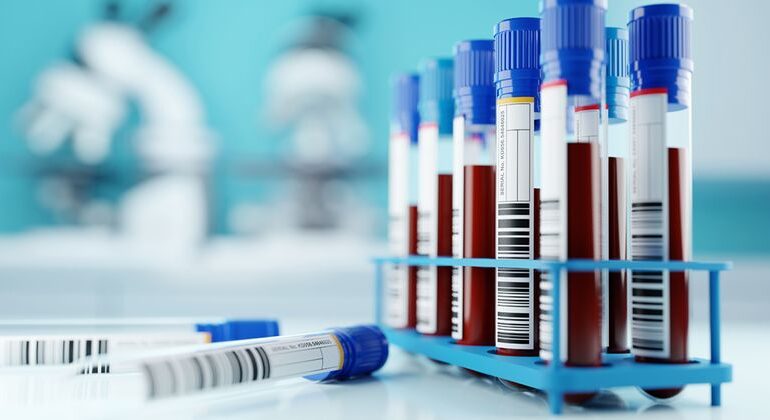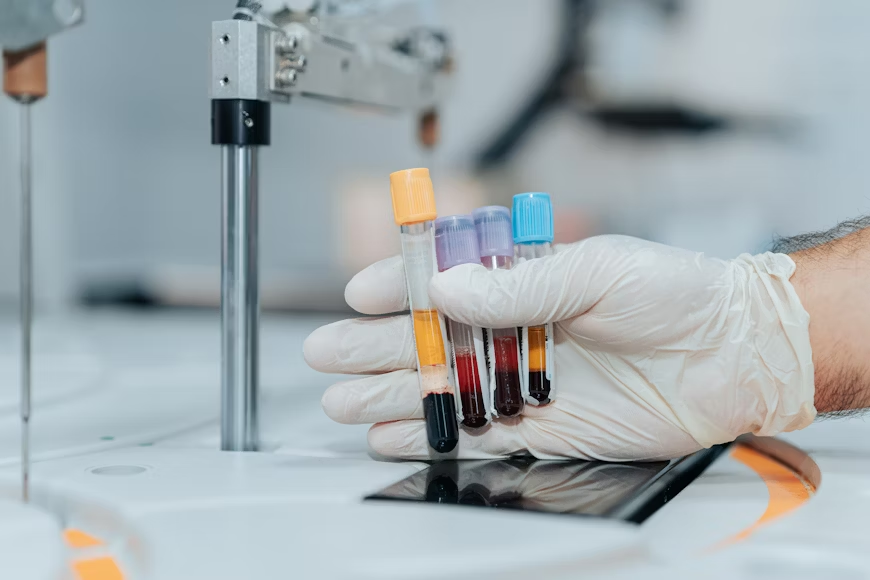I Took Labcorp’s 1,000 Biomarker Test—Here’s What I Learned (and What I Wish Was Different)
When I first heard about Labcorp’s new 1,000+ biomarker panel, I was excited—and honestly, a little relieved. Finally, I thought, a way to look deeper than the typical annual checkup.

When I first heard about Labcorp’s new 1,000+ biomarker panel, I was excited—and honestly, a little relieved. Finally, I thought, a way to look deeper than the typical annual checkup. A chance to find out what’s really going on in my body. And it was revealing. I walked away with data that helped me connect the dots on my fatigue, inflammation, and hormone shifts.
But here’s the truth:
Advanced testing is powerful—but it’s far from perfect.
And if we’re going to talk about the future of precision health, we also need to talk about the flaws in the system—because there are quite a few.
Why I Took the 1,000 Biomarker Panel
Labcorp’s panel offers insights across cardiovascular health, metabolic function, hormones, inflammation, liver and kidney function, micronutrient levels, and even aging markers. On paper, it sounded like the most comprehensive test you could get without a team of private physicians.
I took it because I wanted answers—about my energy levels, my sleep issues, and the subtle symptoms my primary care doctor usually brushed off.
The panel gave me plenty of data. But it also gave me questions—many of which the healthcare system isn’t equipped to answer.
What’s Missing (And What’s Not Helping)

As empowering as this test felt, I quickly discovered its limitations. And they matter.
1. Great labs exist—most doctors won’t order them.
I’ve learned over the years that there are incredible functional and advanced panels for heart health, cognitive function, gut permeability, and detox pathways—but they’re rarely offered in traditional care. Many primary care doctors either don’t know about these labs or don’t see them as “medically necessary.” You end up doing them out of pocket—or not at all.
2. Some key labs weren’t included.
Surprisingly, even a 1,000-marker panel doesn’t cover everything. I was missing certain advanced lipid tests, mold and mycotoxin exposure screening, and detailed cognitive biomarkers tied to early brain aging. If you’re looking to optimize—not just detect disease—you’ll likely need additional testing.
3. Some markers are… well, filler.
Let’s be honest: a 1,000-marker test sounds impressive, but not every biomarker provides meaningful or actionable insight. Some felt redundant. Others had very little clinical relevance to my health questions. In short: more data doesn’t always mean better clarity.
4. Genetic testing is not for everyone.
Some panels dive into genetic predispositions—APOE status, MTHFR mutations, detox gene variants, longevity markers. For some, that’s empowering. For others? It can increase anxiety, especially when there’s no clear solutiontied to the information. Not everyone wants to know their risk of Alzheimer’s or Parkinson’s when that knowledge comes with no guaranteed intervention.
5. Most doctors don’t know what to do with this data.
This was the hardest part. I brought my panel to two different providers—both well-meaning, highly trained doctors—and neither knew how to interpret the results in full, or what follow-up tests to order. Functional medicine doctors are more familiar, but access and affordability are major issues.
So Is It Worth It?
For me, yes—because I’m curious, proactive, and not afraid to dig deep or seek alternative paths.
But for most people? Advanced testing without a support system is like having a map in a language you can’t read.You have the directions—but not the guide.
That’s where the gap is: we have the technology, but we don’t yet have the infrastructure, education, or equity to support people through it.
What We Need to Do Better
At Ravoke, we believe in expanding access to testing and education. That means:
- Training more providers on how to interpret advanced biomarker panels
- Offering these tests with post-lab coaching, not just data dumps
- Customizing panels, so people get what’s helpful and skip what’s anxiety-inducing
- Integrating insurance or alternative payment support so these tools aren’t just for the privileged few
- Creating partnerships between traditional and functional medicine, so we stop forcing people to choose between “standard” and “progressive” care
Some Thoughts
Labcorp’s 1,000 biomarker test is a huge step toward more personalized, preventive healthcare. It gave me insight, motivation, and a better understanding of my health story. But it also exposed just how far we still have to go.
Because data without context is overwhelming.
And precision without guidance isn’t healthcare—it’s just information.
If you’re considering an advanced panel, go in informed. Know what questions you want to answer. Find a provider (or a platform like Ravoke) that can help you interpret the results. And most importantly—remember that you are not your labs. You are a whole human being. And your wellness deserves real support.
With curiosity
By Barbra Tyson for Ravoke.com








